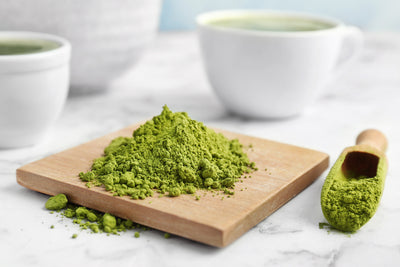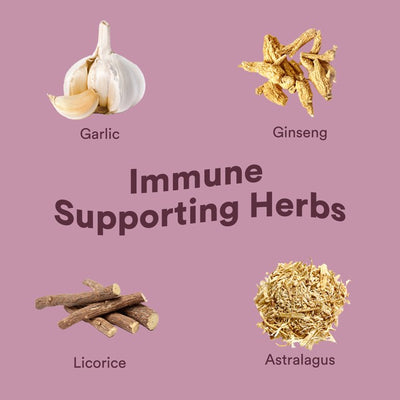One of most commonly recognized, accepted, and used stimulants in modern day is caffeine—namely coffee. Over the last decade or so, matcha has also made its way to the top hits at cafes around the world. Both have such unique flavor profiles, backgrounds and histories, and caffeine content. Let’s break down the differences between these two beloved beverages!
What is caffeine?
Caffeine is a bitter compound that’s found naturally in a variety of plants. Coffee bean trees and matcha green tea plants being two of them! Caffeine is a stimulant that affects the central nervous system very rapidly, making it one of the easiest ways to switch on energy or focus quickly.
What is Matcha?
Matcha is a type of green tea grown predominantly in Japan. Its unique bright green color comes from its harvesting process. Halfway through harvest, matcha is shade grown, making the chlorophyll work overtime and giving it a bright green hue. Matcha has been used for centuries in Japan and neighboring Asian countries. It contains the powerful amino acid, L-theanine, which can cross the blood-brain barrier and generates a “smoother” energy boost with less crash than other caffeinated sources, like coffee. This is a particularly unique attribute of matcha because it contributes to the calm sense of alertness people know and love matcha for!
What is Coffee?
Coffee grows on small flowering trees and shrubs, and are actually found inside of a cherry-like fruit. The “beans” we refer to coffee as, are actually seeds! Coffee is mainly grown in an area called the Bean Belt, which includes Central and South America, Africa, parts of the Middle East, and Asia, too. Coffee comes in a great range of varieties, ranging in robust and bold flavors to citrusy and sweet. The tasting notes are greatly impacted by the soil, surrounding climate and agriculture, and harvesting processes. People know and love coffee for the instant gratification buzz that can energize you in just a few sips!
Coffee vs Matcha
So which one is better? Coffee or matcha? They are both uniquely delicious, and uniquely stimulating. Where they vary is in their method of activating our central nervous system, and the impact it has on us long-term. Coffee provides a very alert, awakened state, whereas matcha provides more of a focused energy. Think of coffee as the “ready for anything” fuel, and matcha as the “ready for exactly what I should be doing” fuel.
However, the benefits of matcha are extensive beyond just a boost to your ability to focus. Matcha contains an amazing amount of antioxidants, and is even shown to help improve skin tone and texture. It’s also said to help support healthy weight loss, and prevent cravings. Additionally, the amino acid content of matcha can also contribute to better brain function long-term.
One of the downsides to matcha that people sometimes complain about is its bitter taste, which is why people often mix it into smoothies or make matcha lattes. Our Japanese Matcha tonic uses a unique blend of natural, non-glycemic sweeteners and a burst of fresh squeezed lime to give it a smooth, bright flavor that’s similar to lime-ade. It’s a delicious, buzz-worthy drink sure to have you hooked!


